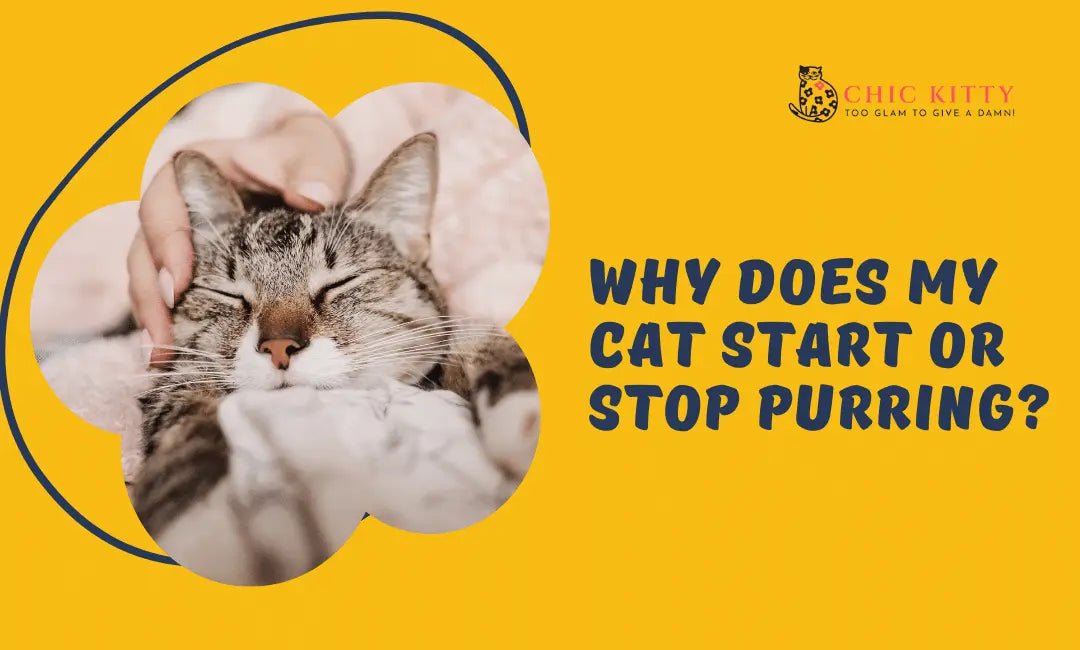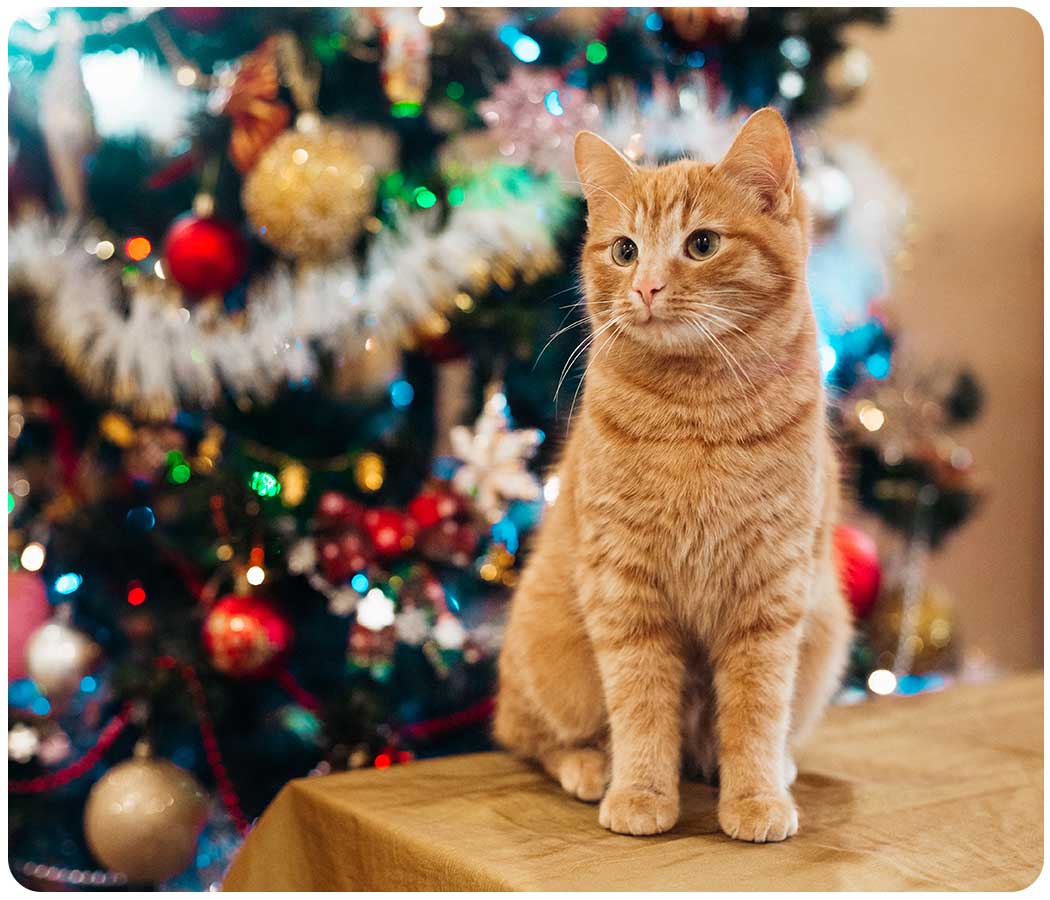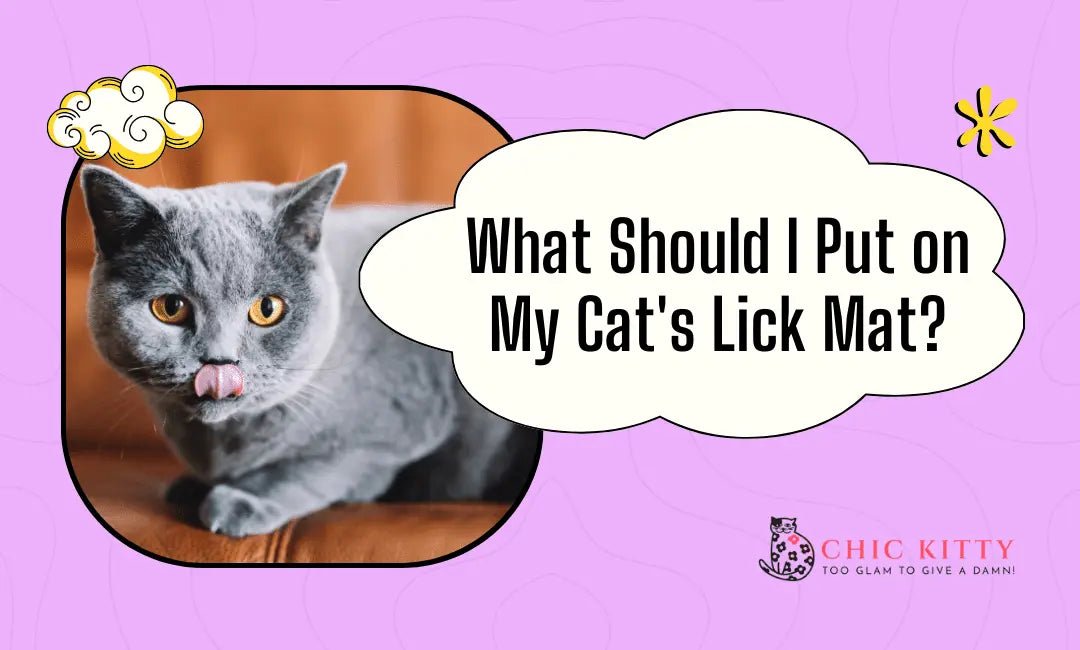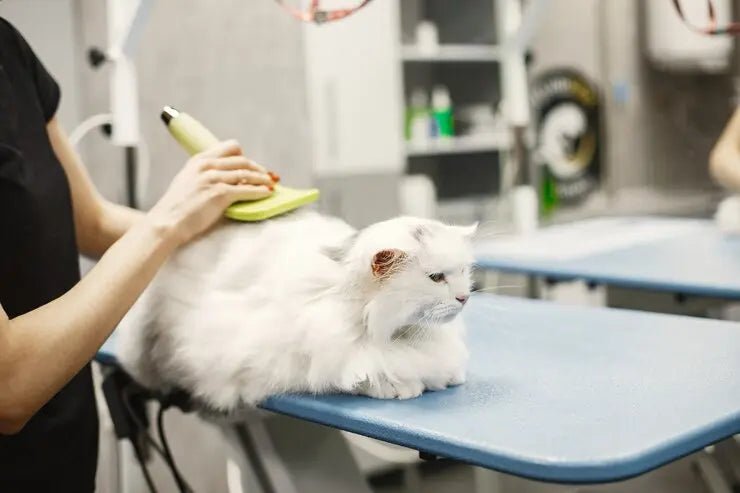
Why Does My Cat Start or Stop Purring? Surprising Reasons Revealed
Why Does My Cat Start
Does your cat's purring motor seem to sputter on and off? One minute they're a cozy bundle of vibrations, and the next, silence. It's enough to leave you feeling a little baffled. Don't worry, you're not alone. A cat's purr isn't just a sign of contentment – it can reveal a surprising range of emotions and needs.
Get ready to decode your feline friend's mysterious purring patterns. We'll uncover:
- Why a happy cat might suddenly stop purring
- How stress or pain can silence those soothing rumbles
- The hidden messages behind purring intensity
- What to do if your cat's purring habits change drastically
Why Does My Cat Suddenly Stop Purring?
We all know that happy purr. Your cat stretches out in a sunny spot, a gentle rumble vibrating through them. It's the feline soundtrack of pure bliss. But then, the purring cuts off abruptly. Did you do something wrong? Is something bothering them?
Don't jump to conclusions. Plenty of reasons for a sudden purring pause are perfectly normal. Here are a few common ones:
- Mission accomplished: Cats are masters of negotiation. They might have been purring to get your attention for a variety of reasons: pets, food, playtime, or even just to establish dominance in a playful way. Once they've secured their desired outcome, the purrs may subside.
- Shifting focus: Cats are curious creatures with short attention spans. Maybe they spotted a bird out the window, heard a rustle in the bushes, or decided it's time for a good self-grooming session. Any sudden distraction can interrupt their purring symphony.
- Conserving energy: While purring is a relatively low-effort activity, it still requires some energy expenditure. A sleepy cat might prioritize rest over rumbling, saving their purrs for later when they feel more invigorated.
- Feeling full: Similar to the "mission accomplished" scenario, a satisfied cat might stop purring after a hearty meal. They've reached a state of contentment and may simply want to relax in silence.
- Internal processing: Sometimes, a cat's purr can be a way to self-soothe or process information. If they're startled by a loud noise or encounter something unfamiliar, they might purr briefly as they assess the situation. Once they've had a moment to understand what's going on, the purring might stop.
Pro tip: Take note of what your cat was doing right before the purring stopped. This can give you clues about why they hit the pause button.
Why Does My Cat Start Purring (And Is It Always A Good Thing?)

While a cat's purr is often associated with happy vibes, it's not always a sign of pure contentment. Here's where things get interesting:
- The "I need something" purr: It's a little sneaky, but cats have figured out that purring gets them things! Whether it's food, attention, or even access to a coveted perch, a specific type of purr can be mixed with meows to create a particularly persuasive request.
- The self-soothing purr: Not every purr is about joy. Cats may also purr when they feel anxious, stressed, or even in pain. The vibrations of a purr have a calming effect and are thought to even have healing properties.
- Feeling territorial: Cats are creatures of habit and strongly value their space. You might notice purring when they're rubbing against your legs, furniture, or other objects. This behavior, along with purring, is a way of leaving their scent and marking their territory.
A sudden change in purring habits can signal a problem. If your normally purr-happy kitty becomes unusually quiet, or a quiet cat suddenly can't stop purring, it's time for a closer look. This could be a sign of pain, illness, or stress, and it's always best to consult your veterinarian.
How to Read Your Cat's Purr
Ready to become a purr-deciphering pro? While a cat's purrs can be a bit enigmatic, paying attention to a few factors can help you understand what they're trying to communicate:
- Intensity: A soft, low rumble often signals relaxation and contentment. On the other hand, a loud, insistent purr might indicate a stronger sense of urgency – perhaps they're desperately craving a treat or belly rub.
- Pitch: Higher-pitched purrs can be associated with positive feelings, while a lower pitch might suggest your cat needs reassurance or is feeling slightly anxious.
- Context: What's your cat doing while they're purring? Are they nestled in your lap? Staring hungrily at their food bowl? Rubbing against a new object? These cues, along with the purr, provide valuable clues about their mood and desires.
- Body language: Pay attention to your cat's overall posture, tail movements, and facial expressions. A tense body and flicking tail alongside a purr could indicate stress or discomfort, while relaxed whiskers and a softly swishing tail typically signal a purrfectly happy kitty.
Each cat is unique, and their purrs will have individual nuances. Spend time observing your feline friend, and you'll start to pick up on their purr-sonality.
When to Be Concerned About Your Cat's Purring
Most changes in a cat's purring habits are perfectly normal. However, there are a few scenarios where you might want to take a closer look:
- Sudden silence: If your usually vocal kitty suddenly falls silent, it's worth checking for signs of pain, discomfort, or illness. A change in purring combined with other concerning symptoms – like lethargy, lack of appetite, or behavioral changes – warrants a visit to the vet.
- Non-stop purring: Similarly, a cat that constantly purrs, even in seemingly inappropriate situations, might be experiencing pain, chronic stress, or an underlying health problem.
- Changes in purr quality: If your cat's purr suddenly becomes raspy, strained, or unusually loud, it could indicate a respiratory issue or other problems warranting a checkup.
Trust your instincts: You know your cat best. If something seems "off" about their purring, don't hesitate to seek professional advice. Better safe than sorry.
What to Do if Your Cat's Purring Habits Change Drastically

A sudden, significant change in your cat's purring can be a bit unsettling. Here's how to approach the situation:
- Observe and document: Pay close attention to any changes in their purring patterns. When does it happen? How long does it last? What other behaviors accompany it? Keeping a little log of these observations can be valuable information for your veterinarian.
- Look for other clues: Is your cat exhibiting any other changes in behavior, appetite, litter box habits, or energy levels? These additional clues can help identify a pattern pointing toward a potential issue.
- Rule out the obvious: Have there been any recent changes in your cat's environment? New people, pets, furniture, or perhaps a move? Sometimes, even seemingly minor changes can trigger stress in cats, impacting their purring patterns.
- Vet visit time: If the purring changes are persistent, accompanied by other concerning symptoms, or you simply can't pinpoint the cause, it's time to schedule a checkup. Your veterinarian can conduct a full examination to rule out any underlying medical issues.
Don't panic! Most changes in purring are completely harmless. However, by being observant and proactive, you can ensure your feline friend stays happy and healthy.
Conclusion: Ready to Decode Your Cat's Purrs?
You now have the tools to understand those mysterious purr patterns. Remember, your cat's purrs are their way of communicating with you. By paying close attention, you can gain valuable insight into their emotional state and overall well-being.
-
Key Takeaways:
- Purring isn't always a sign of pure happiness
- Changes in purring habits can be normal or a sign that something is wrong
- Decode your cat's purrs by considering intensity, pitch, and context
- Don't hesitate to consult your vet if you have concerns
Speaking of understanding your feline friend... does your kitty sometimes get those unexplained zoomies or have trouble settling down? ChicKitty offers a range of natural calming products to help your cat feel their best. Explore our Health & Wellness collection for gentle, vet-approved solutions that might be the perfect fit for your furry companion.




